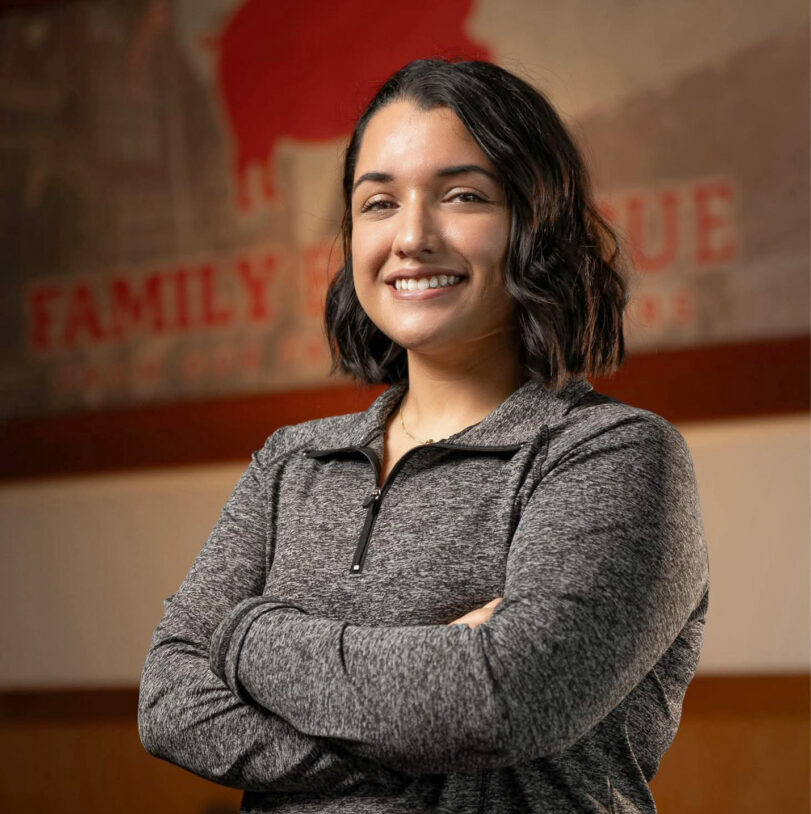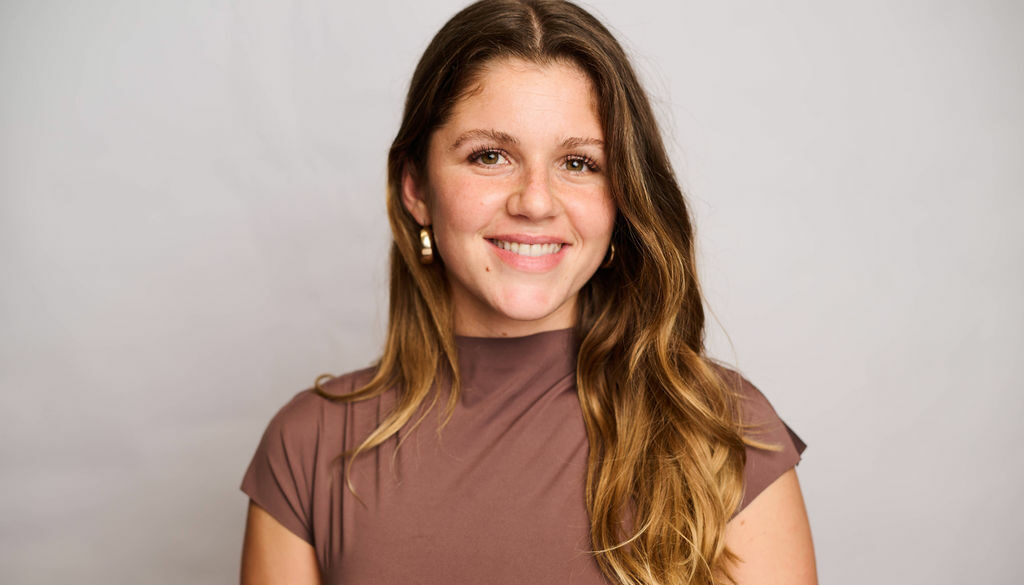We’re excited to introduce you to the always interesting and insightful Kira Solomatova. We hope you’ll enjoy our conversation with Kira below.
Hi Kira, appreciate you sitting with us today to share your wisdom with our readers. So, let’s start with resilience – where do you get your resilience from?
If someone were to ask me to name one quality we should foster in our children, I would say “resilience.” Resilience is one of the most important skills we acquire in childhood and a skill we continue to develop throughout our lives. While there are undoubtedly numerous other essential skills required for life, the ability to rebound from adversity serves as the bedrock upon which all other skills rest.
But how does one nurture this vital skill?
Resilience flourishes in an environment characterized by loving relationships, opportunities to process disappointments, and room to struggle. I firmly believe that the initial prerequisite for resilience is having someone in your life who loves you unconditionally and genuinely enjoys your company. All humans need to feel connected, seen, heard, understood, and appreciated. Children especially need this. In my own childhood, my grandmother, Dora, took this role. I don’t think Dora knew much about child development or intentionally tried to influence my life. Dora allowed me to explore the treasures in her purse and listened attentively to my every story. She was delighted to spend time with me. When I was five years old, my parents and I were in the midst of moving to a new apartment—an exciting yet emotionally charged event. It was difficult to leave behind the house I had known and loved my entire life. So, I turned to my grandmother, Dora, and said, “I’m going to the corner of the room now to say ‘goodbye, house,’ and you will say back to me, ‘goodbye, Kira.'” I reassured Dora that I understood the house couldn’t really respond, but I needed this closure. Dora understood me perfectly and granted my request, helping me process one of my first experiences of separation and loss.
The second key element in developing resilience is the opportunity to confront the challenges we encounter throughout the day and process what happens. It is like taking a heavyweight off of the child’s back after a stressful moment. Just before the move to our new home, my parents decided that I would spend the night at my uncle and aunt’s house. It was my first night away from home, and my Aunt Valentina and Uncle Dmitry put me on a lofty, plush bed—a thrillingly new experience. I awoke as soon as the sun’s rays streamed through the window and rushed to their bedroom, exclaiming, “Wake up, Aunt Valentina and Uncle Dmitry! How can you still be sleeping? The sun is up! I understand I’m a child, but you’re grown-ups—you should be up!” They chuckled and explained that it was still quite early, but they got out of bed. Aunt Valentina began preparing breakfast, and Uncle Dmitry retrieved a small wooden miniature crane, a bird perched on one long leg. I was utterly captivated by this toy, cradling it gently in my hands. The leg was remarkably long, and a sudden curiosity overcame me—what would happen if I squeezed it between my fingers? I did just that, and with an unfortunate snap, it broke. I stared at the broken crane in disbelief, panic welling up within me. It had happened so swiftly, and there was no way to undo it. I felt terrible, utterly embarrassed about breaking such a cherished gift. Tears streamed down my face, and both Aunt Valentina and Uncle Dmitry were very concerned about what could have upset me so much. They kept asking me what happened, but for a long while, I remained silent, shedding tears. Eventually, I confessed to breaking the toy. They listened intently, and then Uncle Dmitry said, “Let’s see what we can do about it. I think there might be a way to fix this.” Uncle Dmitry retrieved some pliers, carefully removed the leg, shortened it, and reattached it. The leg was not as long anymore, but it was fixed. We sat together and discussed the incident. I recall Uncle Dmitry telling me that problems often have solutions, and it’s crucial to consider what can be done.
The third crucial element is the opportunity to struggle. While my mother and grandmother were inclined to shield me from struggles to protect my feelings from frustration and disappointment, my father adopted a different stance. He was willing to wait and refrain from intervening prematurely. He was the one who taught me to read and ride a bicycle, instilling in me a belief in myself and the importance of determination.
The fourth element of raising a resilient child is making sure that we model self-compassion and do not forget to recharge our own batteries. I bet that when parents think about upbringing children and particularly about fostering resilience, it is easy to get overwhelmed. Questions may pop up in our minds: What if I don’t do well enough? What if I am missing something? It is easy to start feeling guilty. Yet, look at the whole situation from another perspective. If we want our children to be able to recover from mistakes, we should first model self-compassion for ourselves. Parents need to have resources in order to provide for their children. My mom modeled self-care for me. When she was tired, she would take short naps during the day and would wake up in a good mood. She planned our vacations for us to be able to spend time together and relax.
All these intentional and unintentional episodes in my life coalesced to mold me into a resilient, determined individual, ready to face life’s challenges head-on.
Thanks, so before we move on maybe you can share a bit more about yourself?
Currently, I’m focused on my website, a project I have been putting off for quite a while. Little did I know that delving into website search engine optimization (SEO) could be such an enjoyable journey. I find myself revisiting my old articles, incorporating key phrases, coming up with meta descriptions, and selecting more fitting illustrations.
My weekly goal is to work on three articles, and I’m already thrilled with the transformation. Previously, I had doubts about my ability to tackle this project by myself, thinking it would be too challenging and dull. However, as I check off tasks on my list, I feel a sense of accomplishment and am eager to see it through to completion.
If you had to pick three qualities that are most important to develop, which three would you say matter most?
Looking back, I believe there were three qualities, skills, or areas of knowledge that had the most significant impact on my journey. Here’s my advice for those who are early in their journey on how to develop and improve these essential attributes:
1. Resilience: Resilience is a skill we start building in childhood and continue honing throughout our lives. While there are certainly many other vital skills in life, the ability to bounce back from adversity serves as the foundation upon which all other skills are built.
Advice: To develop resilience, remind yourself that setbacks are a part of life. Everyone, without exception, experiences setbacks. Try to embrace challenges as opportunities for growth. Seek support from friends, family, or mentors when facing difficulties, and focus on finding solutions.
2. Self-Compassion: Self-compassion is crucial because excessive guilt and self-criticism can hinder progress.
Advice: Acknowledge your mistakes, learn from them, and then forgive yourself. Understand that everyone makes mistakes. Self-compassion can help you move forward with a clearer mindset.
3. Consistency: Consistency is key to achieving long-term success. Working effectively for a single day may not move the needle much, but consistent, small efforts over time can yield significant results.
Advice: Think of consistency like physiotherapy. Doing it all day might harm you, but dedicating just fifteen to thirty minutes every day can lead to improvement. You can study the whole day and have a very productive day or you can just learn two or three words a day and at the end of the year, you will know around 1000 words. Apply this principle to your goals, whether it’s learning a new language or pursuing a business endeavor. Consistent, daily efforts compound over time.
Be kind to yourself, embrace setbacks, stay committed to consistent efforts, and you’ll be on a path to success.
Who has been most helpful in helping you overcome challenges or build and develop the essential skills, qualities or knowledge you needed to be successful?
Ruth Anne Hammond is my mentor and best friend. She is an incredible, kind and resilient. Ruth Anne is caring and gentle with others, yet she manages to maintain a firm and honest demeanor.
I closely observed her and learned how to navigate various challenging situations: how to communicate more directly, how to extend empathy to someone in distress, how to pause and allow others to speak, and how to remain composed when everything seems to be going wrong. I am immensely grateful for her mentorship, friendship and compassion.
Contact Info:
- Website: www.ourparentingplace.com
- Instagram: https://www.instagram.com/ourparentingplace/
- Facebook: https://www.facebook.com/ourparentingplace/
- Linkedin: https://www.linkedin.com/in/kira-solomatova-b349b723/
- Twitter: https://twitter.com/oparentingplace
- Youtube: https://www.youtube.com/channel/UCyDwOUAzQPZBTQM5bdpr8IQ
- Yelp: n/a
- SoundCloud: n/a
- Other: Alignable: https://www.alignable.com/pasadena-ca/teacher-kira-our-parenting-place Google: https://goo.gl/maps/NP1XjgxQ9nSU9ekW8








Image Credits
Nicola Borland Irina Popa




